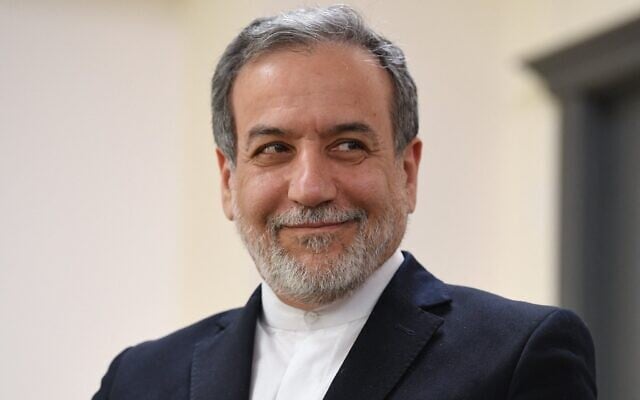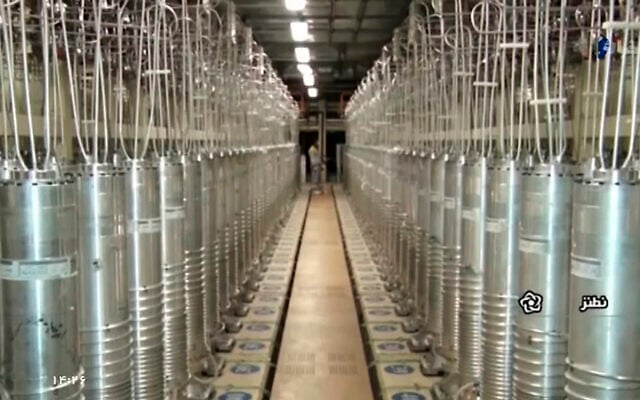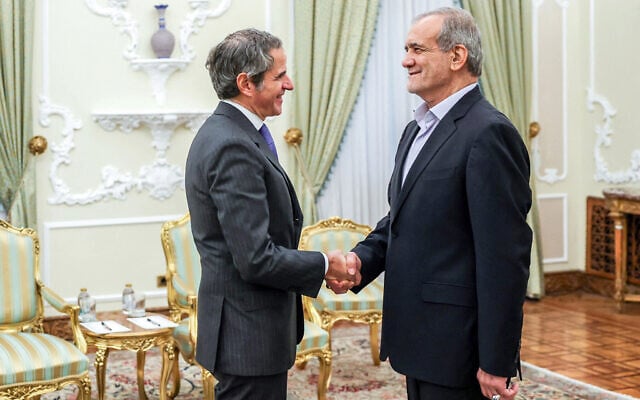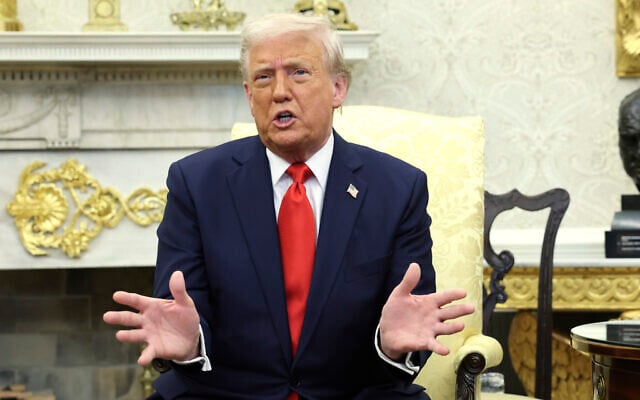


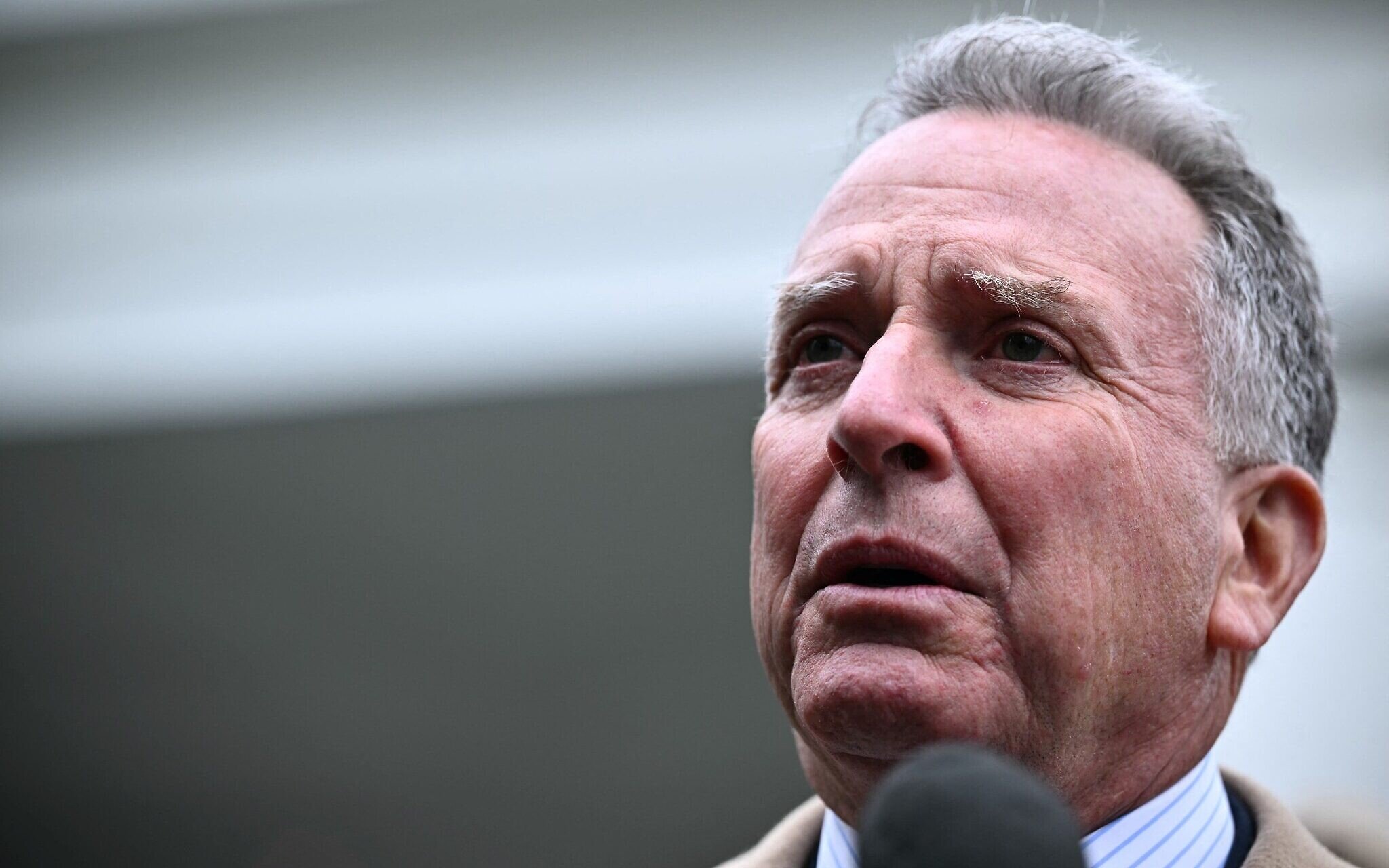
US special envoy to the Mideast Steve Witkoff appeared to use a key component of the 2015 Iran nuclear deal signed during the Obama administration as a reference point for the ongoing talks with Tehran, in comments that seemed to indicate the US is looking to limit rather than dismantle Tehran’s nuclear program.
The deal, which US President Donald Trump abandoned in 2018 and has long criticized, barred Iran from enriching its uranium beyond 3.67 percent as part of a framework intended to prevent the Islamic Republic from obtaining a weapon.
Iran “do[es] not need to enrich past 3.67%. In some circumstances, they’re at 60%, in other circumstances 20%. That cannot be,” Witkoff told Fox News in a Monday interview. “You do not need to run — as they claim — a civil nuclear program where you’re enriching past 3.67%.”
Enriching uranium from 60% to the 90% needed for a weapon is a relatively short technical step.
The comments indicated that the US is looking to limit Iran’s uranium enrichment rather than dismantle its nuclear program altogether, as demanded by Israel, which sees a nuclear-armed Iran as an existential threat.
A first round of talks over Tehran’s rapidly advancing nuclear program took place over the past weekend in Oman. They were the highest-level Iran-US negotiations since the collapse of the 2015 nuclear accord and included a conversation between Witkoff and Iranian Foreign Minister Abbas Araghchi.
The stakes of the negotiations couldn’t be higher for the two nations closing in on half a century of enmity. Trump repeatedly has threatened to unleash airstrikes targeting Iran’s nuclear program if a deal isn’t reached. Iranian officials increasingly warn that they could pursue a nuclear weapon with their stockpile of uranium enriched to near weapons-grade levels.
Witkoff said the next round of talks with Iran will focus on “verification on the enrichment program and then ultimately verification on weaponization.”
“That includes missiles — the type of missiles that they have stockpiled. And it includes the trigger for a bomb,” he added.
“We’re here to see if we can solve this situation diplomatically and with dialogue. The first meeting was positive, constructive, compelling,” Witkoff said.
Pressed on whether US inspectors — rather than UN inspectors — would be the ones to verify that Iran is adhering to any deal that is reached, Witkoff declined to answer directly.
Though a second round of talks was confirmed, there was confusion over which country would host the negotiations.
Following indirect negotiations in Muscat last weekend, Iranian foreign ministry spokesman Esmaeil Baqaei said overnight Monday that the next talks would take place in Oman’s capital on April 19, IRNA reported. The Dutch and Italian foreign ministers had earlier said that the talks would be held in Rome.
Baqaei said the next set of talks would continue to be indirect with Omani mediation, adding that direct talks with the US were “not effective” and “not useful.” Oman’s foreign minister shuttled between the two delegations at the last talks.
American officials have not said where the talks would be held.
The next meeting had been expected to take place on Saturday in Rome, according to a source in the Italian government who spoke on condition of anonymity to The Associated Press because they weren’t authorized to speak publicly. Italian Foreign Minister Antonio Tajani also signaled the talks would take place there.
“We received the request from the interested parties, from Oman, which plays the role of mediator and we gave a positive response,” Tajani told reporters during a trip to Osaka, Japan. “We are ready to welcome, as always, meetings that can bring positive results, in this case on the nuclear issue.”
Dutch Foreign Minister Caspar Veldkamp, speaking at a meeting in Luxembourg, also said the coming talks would be in Rome. Iran’s foreign minister Araghchi reportedly said Monday the talks would happen in Rome while speaking to his Iraqi counterpart on Monday, according to the state-run Iraqi News Agency.
Then early Tuesday, IRNA news agency quoted Iranian spokesperson Baghaei as saying the talks would be back in Oman, without elaborating on the reason. Easter Sunday will be this coming weekend, a major holiday in Rome, which surrounds Vatican City, the home of the Roman Catholic church.
Baqaei had previously said the only focus of the next talks would be “the nuclear issue and the lifting of sanctions,” and that Iran “will not have any talks with the American side on any other issue.”
Late Sunday, IRNA reported that Tehran’s regional influence and its missile capabilities were among its “red lines” in the talks.
Iran and the US separately described Saturday’s discussions as “constructive.”
Baqaei reiterated that Iran would host United Nations nuclear watchdog chief Rafael Grossi in the coming days but noted that the details of his trip were still “to be decided on.”
In a post on X, Grossi confirmed that he would be heading to Tehran “later this week.”
“Continued engagement and cooperation with the Agency is essential at a time when diplomatic solutions are urgently needed,” he said.
IRNA later reported that Grossi would arrive on Wednesday to meet Araghchi and Mohammad Eslami, the head of Iran’s nuclear energy agency.
The head of the International Atomic Energy Agency last visited Iran in November when he held talks with top officials, including President Masoud Pezeshkian.
The IAEA played a key role in verifying Iran’s compliance with its nuclear deal with world powers and has continued to work in the Islamic Republic, even as the country’s theocracy slowly peeled away its access after Trump unilaterally withdrew America from the accord. The US then reinstalled stiff sanctions while Iran dropped many of its commitments under the deal, including limits on uranium enrichment.
Last week, Iran threatened to halt cooperation with IAEA inspectors if the US continued to threaten the use of force if talks collapsed,
Iran’s foreign minister Araghchi is set to visit Moscow this week to discuss recent nuclear negotiations with the United States held in Oman, the foreign ministry spokesman additionally said.
“Dr Araghchi will travel to Moscow at the end of the week,” Baqaei said, adding that the trip was “pre-planned” and would be “an opportunity to discuss the latest developments related to the Muscat talks.”
Russia, a close ally of Iran and party to the 2015 deal, and China have engaged with Tehran in recent weeks over its nuclear program.
Russian foreign ministry spokeswoman Maria Zakharova said Araghchi would meet his Russian counterpart Sergei Lavrov and other officials.
Moscow welcomed the Iran-US talks as it pushed for a diplomatic solution and warned that military confrontation would be a “global catastrophe.”
Meanwhile, US Secretary of State Marco Rubio spoke to Turkish Foreign Minister Hakan Fidan earlier Monday about the dangers posed to regional security by Iran and its proxies, State Department spokesperson Tammy Bruce said.
“They agreed on the importance of counterterrorism cooperation and strengthening NATO,” the statement said.

